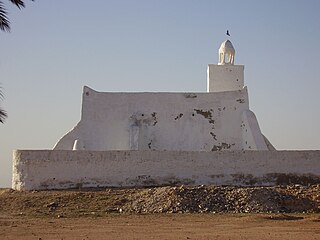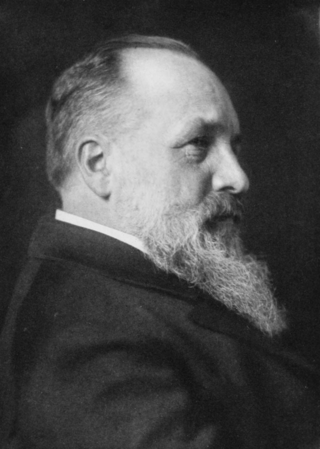Related Research Articles
Islamic studies refers to the academic study of Islam, which is analogous to related fields such as Jewish studies and Quranic studies. Islamic studies seeks to understand the past and the potential future of the Islamic world. In this multidisciplinary program, scholars from diverse areas participate and exchange ideas pertaining to the particular field of study.
The Kharijites were an Islamic sect which emerged during the First Fitna (656–661). The first Kharijites were supporters of Ali who rebelled against his acceptance of arbitration talks to settle the conflict with his challenger, Mu'awiya, at the Battle of Siffin in 657. They asserted that "judgment belongs to God alone," which became their motto, and that rebels such as Mu'awiya had to be fought and overcome according to Qur'anic injunctions. Ali defeated the Kharijites at the Battle of Nahrawan in 658, but their insurrection continued. Ali was assassinated in 661 by a Kharijite dissident seeking revenge for the defeat at Nahrawan.

The Ibadi movement or Ibadism is a branch inside Islam, which many believe is descended from the Kharijites. The followers of Ibadism are known as the Ibadis or, as they call themselves, The People of Truth and Integrity.

Islam is the state religion in Oman, introduced during the Prophet Muhammad's lifetime in the early 7th century. Muhammad appointed Amr ibn al-As as governor, who remained until Muhammad's death in 632 CE. Amr and Sa'id ibn Aws al-Ansari delivered Muhammad's letter to the Al-Julanda brothers; the rulers of Oman, inviting them to embrace Islam. This peaceful mission marked the beginning of Islam in Oman. Today, 85.9% of Oman's population is Muslim, with slightly over 45% following Sunni Islam, and around 45% Ibadi Islam, with the other 5% identifying as Shia Muslims.

Haqiqa is one of "the four stages" in Sufism, shari’a, tariqa, haqiqa and marifa.

Carl Eduard Sachau was a German orientalist. He taught Josef Horovitz and Eugen Mittwoch.
Gerald R. Hawting is a British historian and Islamicist.

Michael Allan Cook FBA is a British historian and scholar of Islamic history. Cook is the general editor of The New Cambridge History of Islam.

Laura Veccia Vaglieri (1893–1989) was an Italian orientalist who made significant contributions to Arabic and Islamic studies in Italy. She was a scholar and served as a professor at the University of Naples "L'Orientale". Her research focused on the historical and institutional analysis of the Arab and Muslim world, and she authored several books on these topics. Additionally, Veccia Vaglieri wrote numerous articles on early Islam and on Ibadism. Her work also included contributions to the Encyclopaedia of Islam and the history of research on Ibāḍī studies.
Abu al-Sha'tha Jabir ibn Zayd al-Yahmadi al-Azdi was an Islamic scholar, theologian and one of the founding figures of the Ibadis, the third major denomination of Islam. He was from the Tabi‘un, or second generation of Islam, and took leadership of the denomination after the death of Abd-Allah ibn Ibadh.

The Nukkari or simple Nukkar were one of the main branches of the North African Ibadi, founded in 784 by Abu Qudama Yazid ibn Fandin al-Ifrani. Led by Abu Yazid al-Nukkari, they revolted against the ruling Fatimids in Ifriqiya, conquering Kairouan in 944 and laying siege to Sousse, but were ultimately defeated in 947. Remnants of the Nukkari are thought to have survived on the island of Djerba. They split from mainstream Ibadism, i.e. the Wahbi. The parent branch of Nukkari, Wahbi Ibadism, was the most mainstream of the schools of thought within Ibadism, due to the fact that most preserved Ibadi texts can be attributed to Wahbi affiliated scholars.
Muḥakkima and al-Haruriyya refer to the Muslims who rejected arbitration between Ali and Mu'awiya I at the Battle of Siffin in 657 CE. The name Muḥakkima derives from their slogan lā ḥukma illā li-llāh, meaning "no judgment (hukm) except God's". The name al-Haruriyya refers to their withdrawal from Ali's army to the village of Harura' near Kufa. This episode marked the start of the Kharijite movement, and the term muḥakkima is often also applied by extension to later Kharijites.
Ibadism, or the Ibadi school of Islam, which has followers in Oman and elsewhere, has been the subject of much academic study. Much of the earlier writings from within the Islamic world presented Ibadism as a heresy. Western academic interest in Ibadism began in the mid-19th century, when translations of Ibadi texts and other literature began to become available. French and Italian scholars focussed mainly on Ibadism in North Africa, while John C. Wilkinson and other British scholars have studied it in Oman, where few texts were accessible until the 1970s.
André Paul Armand Nègre was a French diplomat born in Castelmoron-sur-Lot in south-western France.
Ibāḍī theology refers to the study of God within the Ibāḍī branch of Islam, and shares a path with Islamic theology. Although the school was founded in Basra, modern-day Iraq, its followers subsequently sought refuge in Oman, Yemen, Hadramawt in the southeast peninsula of Arabia, and North Africa. Though largely ignored by the mainstream of Arab and Muslim scholarship, and scarcely tapped by Orientalist research, there does exist a continuous tradition of Ibāḍī scholarship throughout the centuries to this day.
John Craven Wilkinson is a scholar of Islamic studies specializing in Ibadi studies. He is a British expert in the field of Ibadi studies.
Ziaka Angeliki is an academic scholar on Islamic studies expertise on Byzantine studies, Ibadi Studies and Shia Studies.
Adam Russell Gaiser is a scholar of Islamic studies specialising on the development of early Kharijites and Ibadiyya.
Dale F. Eickelman is an American anthropologist with an expertise on the Middle East. He is the Ralph and Richard Lazarus Professor of Anthropology and Human Relations at Dartmouth College.
Cyrus Ali Zargar is an Islamic studies scholar and the Endowed Al-Ghazali Distinguished Professor in Islamic Studies at the University of Central Florida in Orlando, Florida. His research mainly focuses on Islamic philosophy, Arabic and Persian literature of medieval Sufism, Classical Sufism and Ethics in literature and film.
References
- ↑ "Valerie J. Hoffman | Religion at Illinois". religion.illinois.edu. Retrieved 2019-04-17.
- ↑ Custers, Martin H. (2016). Al-Ibāḍiyya: A Bibliography. 3 (Second revised and enlarged ed.). Hildesheim-London-N.Y.: Olms Publishing. p. 322.
- ↑ "Valerie Hoffman". valeriehoffman.academia.edu. Retrieved 2019-04-17.
- ↑ "Valerie Hoffman". valeriehoffman.academia.edu. Archived from the original on 2019-04-17.
- ↑ "Valerie J. Hoffman | Religion at Illinois".
- ↑ Custers, Martin H. (2016). Al-Ibāḍiyya: A Bibliography. 3 (Second revised and enlarged ed.). Hildesheim-London-N.Y.: Olms Publishing. p. 324.